Classics and Latin should not be code words for posh and privileged, say Miri Teixeira and George Connor.
While many of a certain age will recall learning Latin at school, few state schools now teach the subjects. Those who do learn them tend to be privately educated.
But Miri, 28, and George, 48, are breaking that mould by encouraging working class participation and state school education in the classics.
The couple run a movement known as the Working Classicists from their Arbroath home.
It started as a website of resources they built in their spare time. Today it’s a network of tens of thousands people.
The Working Classicists‘ latest accomplishment is publishing a compendium, A Periodic Table of Greek Mythology.
Some of the book’s state school educated contributors are pupils and colleagues of George’s at Monifieth High School, where he teaches classical studies.
When George and Miri, a web content designer at Dundee University, got together during lockdown they discovered a shared interest in the subject.
And frustration that it had become “the preserve of private schools”.
How Working Classicists grew from a pun to a movement
George explains: “I came up with Working Classicists as a pun and said ‘let’s make some t-shirts’.”
But with a background in political and union campaigning, Miri saw the potential for more than just a t-shirt.
She says: “We didn’t start Working Classicists because we think classics is the best thing in the world – although we do!
“We started it because when people see smart, accomplished, educated historians and experts they shouldn’t always be old, posh, white men.
“If we allow these subjects to become a code word for posh and privileged we limit the opportunities of working class kids before they even get a chance.”
Majority of Latin pupils in private schools
Of the 580 pupils who sat a Latin exam in Scotland last year, fewer than a quarter were from local authority schools.
“If you go to Waterstones look at the names on the spines of the books in the classics section,” says George. “99% of those will be people who went to private school.
“People who go to state schools will look at those book shelves and think that’s not for me, that’s not my world. And that’s a tragedy.”
But their book, Miri says, demonstrates there are good writers from ‘ordinary’ backgrounds out there.
Initially an English teacher, George persuaded his head teacher at Monifieth High School to reintroduce classics after returning to school himself aged 38 to learn the subject.
Monifieth High is now the only Tayside school to offer Latin at National 5 level.
And children who study it, Miri says, love it.
“When they decide classics is their thing they come in at lunchtime, they form a little club; there’s something about it.
“Then they stay in touch, they get involved in our [Working Classicists] stuff, they post about it on social media.”
What is classics? Why is it relevant?
Classics is the study of the languages, literature, history and culture of the ancient world, including the Greeks and Romans.
It is, George and Miri say, woven through popular culture and relevant to almost every industry.
Greek and Roman mythology feature in video games like Assassin’s Creed Odyssey and Hades. They are the basis of novels, films and television like the Percy Jackson series, Gladiator and Netflix’ Kaos. TikTok is awash with videos about Greek mythology.
A knowledge of classics is helpful for numerous careers including journalism, law, medicine, computer sciences, politics and art.
Explaining the appeal, George says, “It changes the way you look at the world. You start to see classical references everywhere.
“It deepens your appreciation of the language you speak in that you start to be able to understand the precise meaning of the words you speak.”
He gives an example. “Oxy means sharp or acidic. Moron means blunt. Oxymoron is itself an oxymoron.”
Is the next Mary Beard at Monifieth High School?
George is proud that Monifieth High School continues to back his passion for ensuring access to classical studies.
“Kids in this school could be the next (classist and historian) Mary Beard.
“But if classics wasn’t here you’d never find out.”
A Periodic Table of Greek Mythology will be launched at Waterstones Dundee on Thursday March 6 at 6pm.
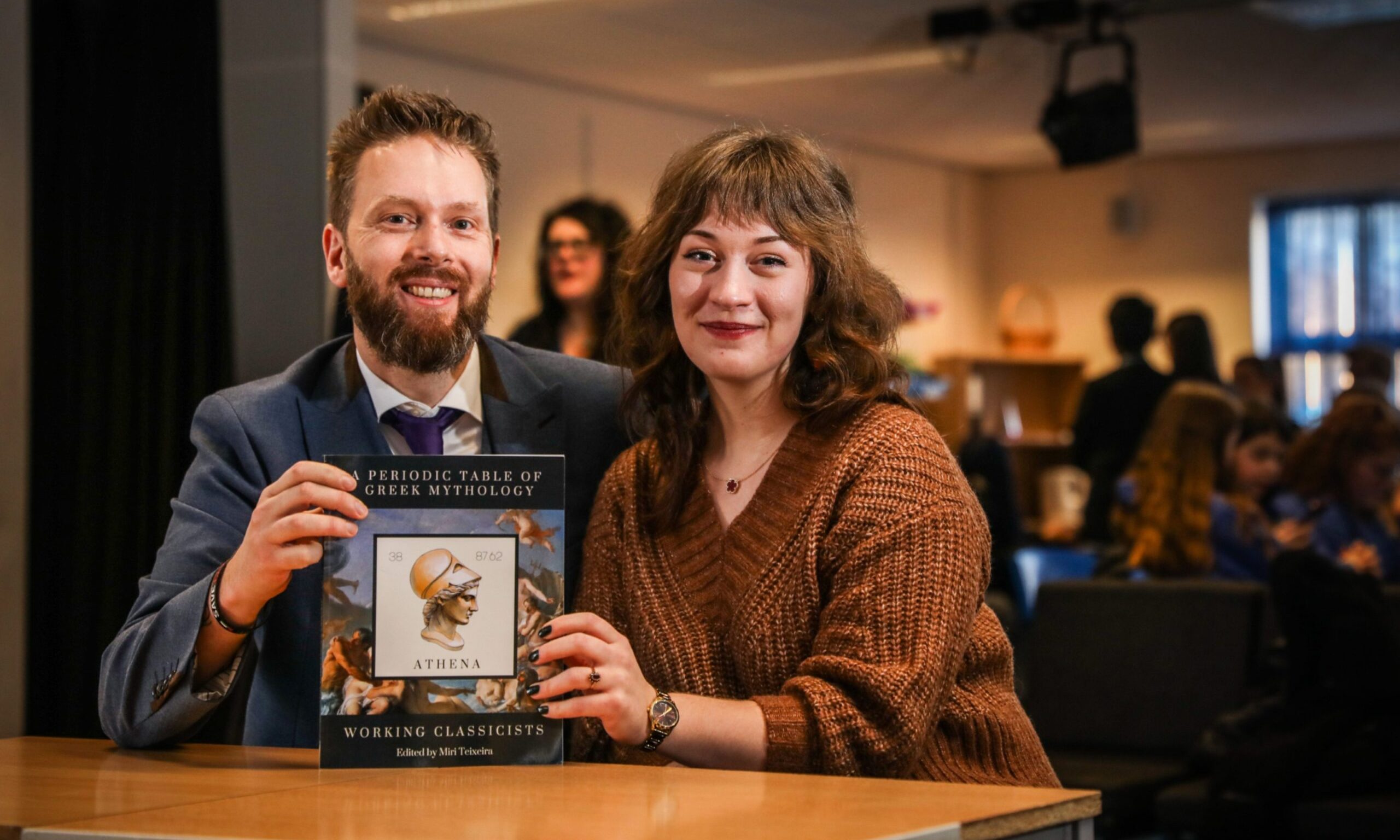
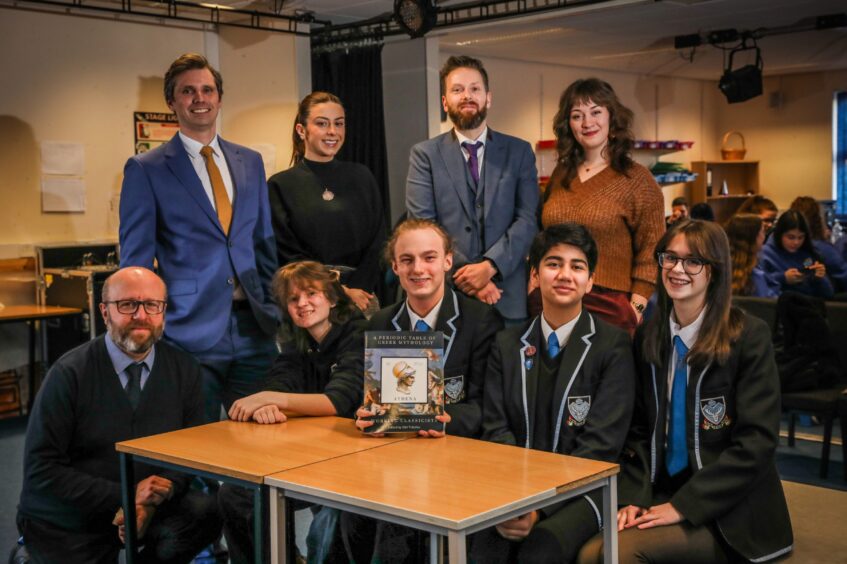
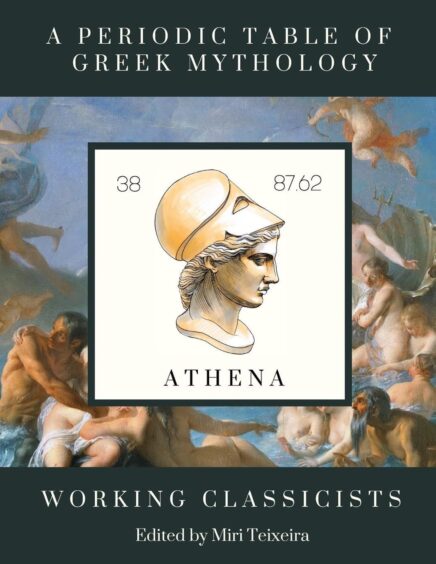
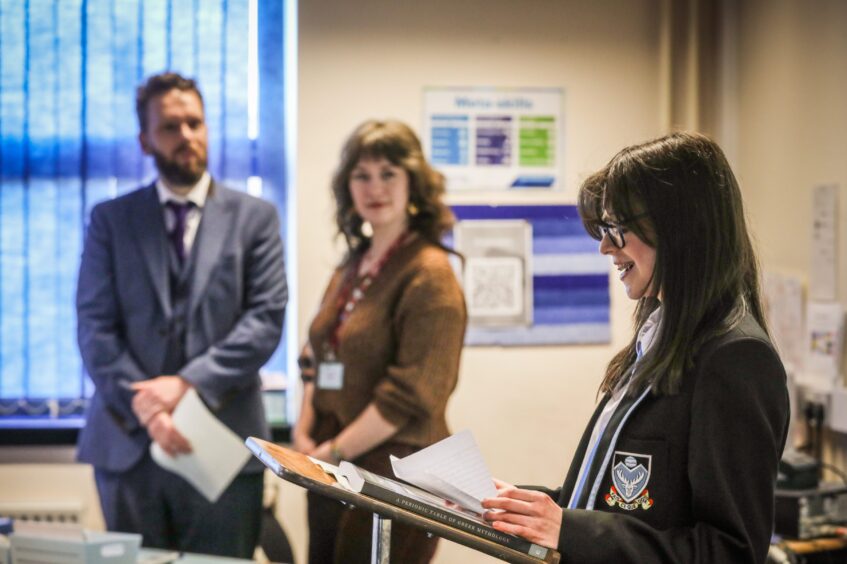
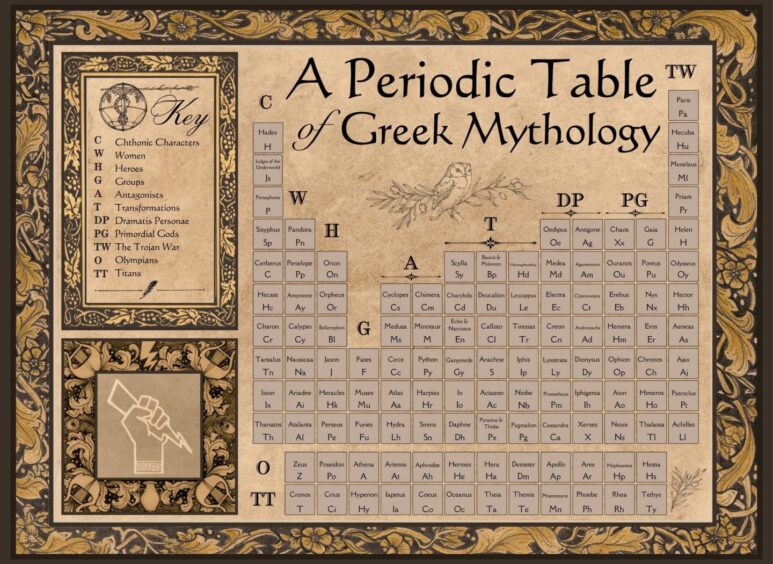







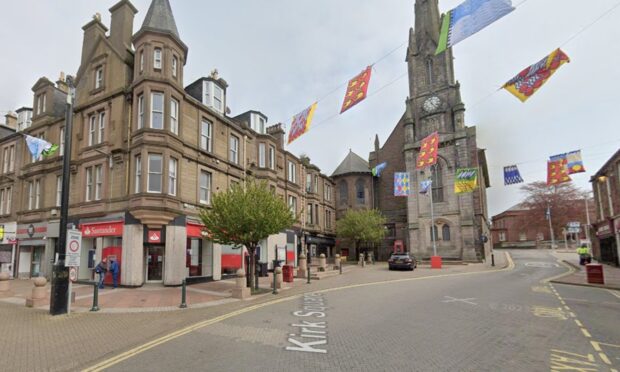
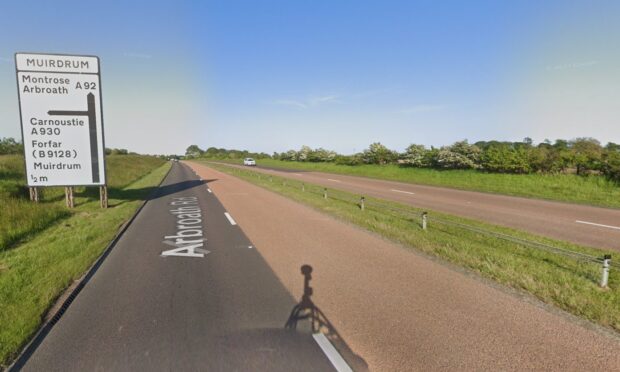

Conversation